






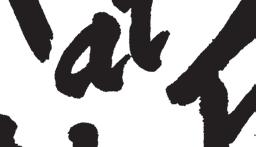

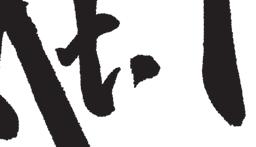



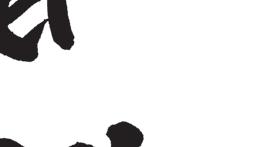
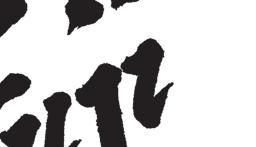





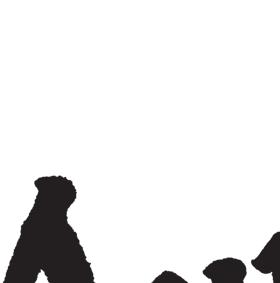

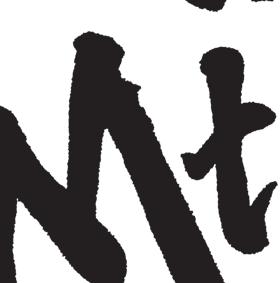


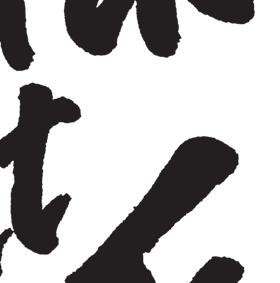
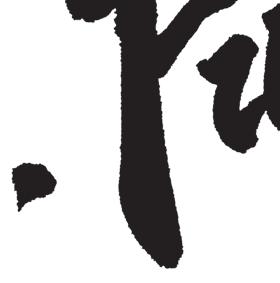

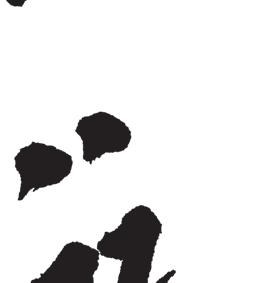
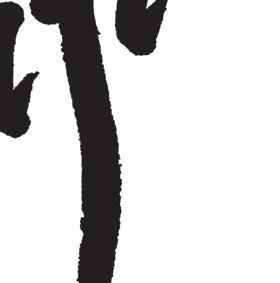






HUTCHINSON HEINEMANN
UK | USA | Canada | Ireland | Australia India | New Zealand | South Africa
Hutchinson Heinemann is part of the Penguin Random House group of companies whose addresses can be found at global.penguinrandomhouse.com
Penguin Random House UK, One Embassy Gardens, 8 Viaduct Gardens, London sw11 7bw penguin.co.uk global.penguinrandomhouse.com
First published in Japan 1982
This English translation first published in the US by St. Martin’s Press 1984
Published in Hutchinson Heinemann 2025 001
Copyright © Shizuko Natsuki, 1982
Translation copyright © Robert B. Rohmer, 1984
The moral right of the author has been asserted
Penguin Random House values and supports copyright. Copyright fuels creativity, encourages diverse voices, promotes freedom of expression and supports a vibrant culture. Thank you for purchasing an authorised edition of this book and for respecting intellectual property laws by not reproducing, scanning or distributing any part of it by any means without permission. You are supporting authors and enabling Penguin Random House to continue to publish books for everyone. No part of this book may be used or reproduced in any manner for the purpose of training artificial intelligence technologies or systems. In accordance with Article 4(3) of the DSM Directive 2019/790, Penguin Random House expressly reserves this work from the text and data mining exception.
Set in 13.5/16pt Garamond MT Std Typeset by Jouve (UK), Milton Keynes
Printed and bound in Great Britain by Clays Ltd, Elcograf S.p.A.
The authorised representative in the EEA is Penguin Random House Ireland, Morrison Chambers, 32 Nassau Street, Dublin d02 yh68
A CIP catalogue record for this book is available from the British Library isbn : 978–1–529–15510–5www.greenpenguin.co.uk
Penguin Random Hous e is committed to a sustainable future for our business , our readers and our planet. is book is made from Forest Stewardship Council® certified paper.















The House by the Lake
The special express to Gotemba departed at noon from the northwest terminal of Tokyo’s Shinjuku Station. Most of the seats were occupied as the train pulled out of the station, the passengers returning home after having paid their New Year’s respects at the Meiji shrine. More than half of them got off at the next station down the line. Gotemba, the train’s final destination, was the jumping off place for excursions in the Mt. Fuji region; from there one could go to the mountain itself, or to the nearby Fuji Five Lakes district. Winter, however, was the off season in that area and by the time the train approached its final stop, fewer than twenty percent of the seats were still occupied.
In Tokyo the weather was dry and clear, but as they approached the mountains, the sky grew overcast with dark, snow-laden clouds, and when the train finally reached Gotemba at two o’clock, light snow was falling.
Jane Prescott descended from the empty coach. Hunching her shoulders, she buried her chin in her muffler for protection against the icy wind. She looked about
at the melancholy scene, her gaze taking in the shabby roof and pillars of the station building. It reminded her of the rural train stations back home in Oregon. As she passed through the ticket-taker’s gate, the old-fashioned clock in the gable of the building indicated 2:03.
Light snow was swirling and dancing around the seedy plaza in front of the station. A row of real estate offices and small inns lined the far side of the plaza. Sacred straw ropes marking the holiday season hung looped beneath the eaves of the inns and fluttered indifferently in the cold wind. Within moments all the passengers had dispersed. Perhaps because it was still early in the season, the crowds of young skiers and skaters one might have expected to find there were absent.
Several taxis and private cars moved about the plaza. An empty taxi cruised to a halt beside Jane, but she shook her head and began walking. A sign directed her toward the bus stop where a clutter of signs indicated which buses went where. Several buses were waiting, clouds of white smoke rising from their exhaust pipes.
Jane’s destination was a villa in the country, where Chiyo Wada was anticipating her arrival. She had been instructed to take the bus to Asahi Hills, an exclusive vacation community on the shores of Lake Yamanaka. Jane had promised to telephone Chiyo before she got on the bus so her friend could meet her when she arrived.
Consulting the posted schedule, Jane learned that there were three buses every two hours, and that the next bus departed at 2:30. She rummaged through her
shoulder bag for a small notebook and coin purse and looked around for a public telephone. Her view was obstructed by a large man sauntering toward her.
“Are you going to Lake Kawaguchi?” he asked in fluent English. He spoke pleasantly in a deep, somewhat husky voice. He had thick lips and rough-hewn features and appeared to be in his mid-thirties, maybe a bit older. A short, black raincoat was draped over his massive shoulders.
“No,” replied Jane, also in English. “I’m only going as far as Lake Yamanaka.”
“What part of Lake Yamanaka?” he asked with an innocent smile, but Jane had the feeling she was being carefully appraised. She wore a fur-lined Burberry coat and tan Indian boots, and carried a shoulder bag and a small overnight case. No doubt she appeared to be one of those typical foreign women who enjoyed traveling alone.
“Well, actually, I’m going to Asahi Hills.”
“Oh, well so am I. If you like, I’ll give you a lift in my car.” He indicated a silver sports car parked at the edge of the plaza. It was a Mercedes-Benz hardtop with Tokyo license plates.
Jane looked at the car, then back at the man. This sort of invitation was really not so unusual. Particularly when one traveled alone in rural areas one often encountered someone who offered a ride out of the goodness of his heart. Knowing this the traveler could accept a ride with little to fear. The practice may have derived
from the American custom of hitchhiking, but it was certainly much safer to accept a ride from a stranger in Japan.
Jane paused to take a breath before replying. “Thank you, I appreciate your offer, but I’ve already arranged to have a friend meet me at the bus stop.”
The man’s gaze took in the coin purse and the notebook in Jane’s hand. “Have you already made arrangements, then?”
“I’m just on my way to call now.”
“Wouldn’t it be easier if I simply took you to your friend’s house and dropped you off?”
“Well, perhaps, but . . .” Jane decided that on the bus she would have a chance to make inquiries about what the villas around here were like. “I guess I’ll take the bus after all.”
“All right, if that’s the way you want it.” The man looked disappointed as he turned and walked away.
After watching him walk to his car and drive off, Jane retraced her steps to the station, where she had noticed a yellow pay phone located beside a bare Ginko tree.
I wonder, she thought, if it would have been dangerous to accept a ride from that stranger?
She went to the telephone booth and dialed the number of the villa. The phone rang three times before a young woman’s voice answered, “Hello, Wada residence.” It was not Chiyo’s voice, so Jane assumed it was one of the maids who had come from Tokyo to help with the housework. Jane dropped a hundred-yen coin
in the telephone slot and said in fluent Japanese, “Hello. My name is Jane Prescott. Is Chiyo in?”
“Yes. Just a moment please.”
Two or three minutes passed before a woman’s soft voice answered, “Hello.” Jane immediately recognized it as Chiyo’s.
“Chiyo, is that you? I’m at Gotemba Station. I just arrived.”
“Oh, you’re here. I’ve been waiting for you.” Chiyo’s voice was vibrant with sincere delight. “It’s late. I was worried that something might have happened.”
“I’m sorry to have worried you. Last night the members of my foreign student club went out to play mah jong and I’m afraid I slept in this morning. How is your work coming along? I hope you’re making progress?”
“Yes, I suppose I am, but it’s hard without having you here to help me.”
Jane explained that she would be taking the 2:30 bus, and Chiyo said she would be waiting at the Asahi Hills bus stop. It was a forty-minute bus trip.
“I suppose the others have already arrived by now,” said Jane, hearing people’s voices in the background.
“The rest of us have been here since yesterday. The chief accountant for the company and a couple of the maids are still around, but after they leave, it looks like there’ll only be about eight of us here this year.”
“They’re all members of the family then?”
“Yes, that’s right.”
“I’m afraid I’ll be intruding on a family affair.”
“No. No, not at all. We consider it an honor that you came all this way just to be with us for the New Year’s holiday. Mother said I was most unreasonable to ask you to come here in the first place. But anyway, I’m so pleased you’ve come, really I am.”
Hearing this put Jane’s mind at ease. “Well then, I’ll just barge right in and make myself at home.” With this parting comment she hung up the phone.
When she picked up her overnight bag and stepped out of the phone booth, the snow was coming down more than before. Although her bag was small, it was surprisingly heavy, weighed down by a well-used dictionary and another large book.
Chiyo Wada was a senior in the English Department at Japan Women’s University. At the age of twenty-five, Jane Prescott was three years older than Chiyo and an American exchange student studying in the graduate school at the same university. Jane was specializing in modern Japanese literature and had come to Japan after completing a master’s degree in Japanese at the University of Oregon. She had been in Japan for a year and a half on a grant, but finding that her subsidy did not cover all her expenses, had taken a part-time job tutoring Chiyo in conversational English.
The makeup of Chiyo’s family was rather complicated. Her great-uncle, Yohei Wada, was the patriarch of the family and the president of Wada Pharmaceuticals, one of the largest pharmaceutical companies in Japan. His name and that of his company were household words all
over the country. It was a tradition in the Wada family to get together every year for the New Year’s holiday at one of Yohei’s several villas. After dismissing their retainers, the entire clan would spend two or three days in seclusion enjoying the holiday. This year they had selected the summer home on the shores of Lake Yamanaka for their reunion. Properly speaking, Jane should not have been invited to the private family gathering, but Chiyo had asked that Jane be allowed to join them because her graduation thesis would have to be submitted soon, and she needed Jane’s help in revising it.
The theme of Chiyo’s thesis was Virginia Woolf; more precisely, a critical study of Mrs. Dalloway. Chiyo had enough innate sensibility to understand and appreciate Virginia Woolf, but her ability to write in English was shaky at best, perhaps because she had been educated in private girls’ schools and had never had to study for college entrance examinations. Nevertheless, as a student majoring in English, she was required to write her graduation thesis in that language. In addition to submitting her thesis, she also had to sit for an oral examination. The thesis was due on January 10 and in order to meet the deadline Chiyo had asked Jane to read the entire thesis and check the places where her use of English was awkward, as well as to rehearse her for the oral examination.
Chiyo had waited until after Christmas before suddenly asking Jane to join the family for the holiday, apparently because she had lost confidence in her ability
to complete the job herself. Seeing Chiyo’s desperate face and realizing that she was on the verge of tears, Jane had felt she could hardly refuse to help. Chiyo had always lived a sheltered life and was such a delicate person both physically and emotionally that most people’s natural response was to be protective of her. It was a certain kind of natural charm the girl had. Even among the complex personal relationships that existed within the Wada family, Chiyo was the one person everyone loved. This fact was the source of the tragedy that was to follow.
There were perhaps ten people waiting at the bus stop by the time the bus was ready to leave. It left promptly at 2:30 and threaded its way through the shop-lined streets of the city and out onto Highway 138, Mt. Fuji soaring majestically in front of them. Although capped with snow, the mountain was not completely white; dark blue streaks running down from the peak accentuated the steepness of its slope.
The clean, paved road wound its way through the foothills in gentle curves. As they drove along, Fuji remained fixed in its position, filling the very center of the windshield. This view of the mountain was much different from the impression one got seeing it at a distance from the window of a bullet train. At this close range one was made aware of its powerful, imposing presence.
As the landscape unfolded around her, Jane was caught up in the natural beauty of the Fuji Five Lakes
region. It was snowing off and on, sometimes falling heavily only to let up moments later. The road they followed was alternately lined with fields of vegetables and groves of cedar. Occasionally there would be a beautiful stand of bare, winter trees. Larch forests towered over them with sharp, angular branches that reached up into the sky. The branches were heavily laden with snow, and the red light of the late afternoon sun shone dimly through the treetops. Mt. Fuji was always in front of them, but the gently sloping ridges of the hills continued to act like a screen, cutting off the view as the bus ran through the broad fields on the lower slopes of the mountain.
At each stop the driver would announce their location on his microphone and two or three people would get off. Only a few new passengers boarded the bus. Within an hour they passed the Tsuzura grade and approached their destination. Rounding a sharp curve they saw a sign announcing, lake yamanaka township yamanashi prefecture . A short distance further on was another sign, kagosaka pass . A tape-recorded message came on the bus’s loudspeaker: “This is Kagosaka Pass; we are one thousand fifteen meters above sea level. In ancient times this road was called the Kamakura Highway. It was along this route that fresh fish and salt as well as the culture of Kamakura and Edo were taken into the mountainous provinces of the interior. This pass is famous for the snow drifts that gather here. In a few moments we will be arriving at our destination of
Asahi Hills.” As the recorded message ended, the bus began a steep descent.
The snow was falling harder than ever and the houses along the road were powdered with it. They had obviously arrived at the shores of Lake Yamanaka, a region dotted by summer houses. The construction of the houses was different from that of the farmhouses they had passed earlier; many of these were elaborately designed villas.
The lake spread out before them at the bottom of the slope, where the road turned at a sharp right angle and followed along the shore. The Asahi Hills bus stop was at the point where the road curved.
As Jane got up from her seat, she could see Chiyo waiting at the covered bus stop. Chiyo was wearing a short, cherry pink coat and a dark brown scarf over her head. Her skirt was the same color as the scarf, and beneath it Jane could see the short, high-heeled boots that encased her slim, straight legs. Chiyo always presented a slender, delicate silhouette. The moment she saw Jane, a smile bloomed on her pale face and she waved.
As Jane stepped off the bus, Chiyo’s first words were the traditional New Year’s greeting. Jane returned the greeting in Japanese. Since Jane spoke Japanese comfortably, the two women made a practice of conversing in that language except when they were working on Chiyo’s English lessons. Their breath hung in white clouds as they chatted in the cold air.
“I hope it’s not too cold for you here,” said Chiyo
with concern. She had classic Japanese features: a long, oval face with narrow eyes and a thin nose. The clean line of her chin was delicate and attractive.
“It’s certainly every bit as cold as I expected it would be. But that’s all right, I’m fine,” replied Jane with a shiver.
“I guess I should have met you with the car.”
“How long does it take to walk from here?”
“If we hurry, it will take about fifteen minutes.”
“That’s not so bad.”
Gas stations, drive-in restaurants, and real estate offices lined the highway. Behind them was another street that served as the main business street of Asahi Hills.
Chiyo turned toward the lake and pointed to the mountains off to the left. “Our house is this way. It is in a very quiet neighborhood on the west side of town.”
The two women crossed a pedestrian bridge over the highway and walked along the road following the shore of the lake. Snow continued to fall. There was a continuous stream of cars on the road, but virtually no other pedestrians in sight.
“It looks like the lake is already frozen over.”
“Only in some places. Underground springs bubble up in other places and keep the water from freezing.”
The surface of the lake was white with an icy blue cast. Here and there it appeared to be frozen in ripples or waves, but occasional patches of open water were smooth and peaceful. Two boats floated in one of the
open patches, fishing for fresh-water smelt. Apart from this, there was nothing, not even the usual groups of people skating. The dry reeds along the shore shivered in the wind. The surroundings were desolate, but the soaring peak of Mt. Fuji in the background gave a majestic quality to the scene.
Along the shore of the lake were a number of resort hotels with New Year’s pine decorations adorning their gates, white birches in their front gardens, and stereo music coming from within. As they passed the hotels, Chiyo explained, “The only time they have guests here in the winter is at New Year’s time.”
The main commercial district in Asahi Hills was surrounded on three sides by summer homes that looked out over the north end of the lake. The main road ran along the edge of the lake and branched into many smaller streets only a few meters wide. These in turn branched out into small lanes leading to individual homes. Chiyo turned left where the street sloped up away from the lake at the third street from the Asahi Hills intersection. The frozen surface of the street was lightly dusted with snow, and more was beginning to collect atop the wooden fences on both sides. Away from the streets the snow was deeper, as though left over from an earlier snowfall.
“The street is slippery, so be careful,” cautioned Chiyo.
The first summer homes they passed were built close together, nearly touching at the eaves, but the further they climbed, the more spacious the lots became and the
larger the houses. Many of them were elegant, Westernstyle homes, but occasionally mixed among them was a traditional Japanese-style home, or one built with the steep roof of the traditional Japanese farmhouse. Between the houses were groves of pine, larch, maple, and birch.
Nightfall came early in the mountains, and this, combined with the lowering snow clouds, made the women feel chilled. Here and there were streetlights designed like the old-fashioned gas lamps of London. On every side the summer homes were quiet and deserted, their gates closed, but there were indications of life in a couple of the larger buildings that displayed signs announcing them to be businesses, hostels, or resorts.
The hill grew steeper and the two women began to breathe heavily as they walked on in silence. Suddenly they heard the sound of a motor and a small, white, compact car came slowly down the hill toward them. The lane was so narrow it was difficult for even a single car to get through. To get out of the car’s way, Chiyo and Jane had to press close to the wooden fence that ran along the street. Just as it came abreast of the two women, however, the car stopped. A young man stuck his head out the window and smiled at Chiyo. He had short, trimmed hair and wore gold-rimmed glasses.
“When I heard you’d gone out on foot in all this snow, I thought I had better come out and give you a lift.”
“It wasn’t snowing like this when I left the house,” said Chiyo cheerfully.
“Well come on, hurry up and get in.” The man unlocked the back door and the two women got in.
“Let me introduce you. This is Takuo Wada, he is my granduncle’s nephew. Takuo’s father was my granduncle’s younger brother. Takuo works in the accounting department of Wada Pharmaceuticals.” Chiyo then went on to introduce Jane. “This is Jane Prescott, who has been teaching me conversational English since last spring. I call her my teacher, but of course she is not much older than I. She is studying modern Japanese literature as a graduate student at the university.”
Jane felt Takuo’s quick, birdlike eyes appraising her. The next question came from him. “Which writers are you particularly interested in?” Takuo addressed her in Japanese, and there was a certain disagreeable tone to his voice, as though he was testing Jane.
“Right now I am reading Yasunari Kawabata and Yukio Mishima.”
“Oh well, no wonder your Japanese is so good.”
“I completed a master’s degree in Japanese at the University of Oregon before coming to Japan, but I’m afraid I still have a long way to go.”
“On the contrary, you’re really doing very well.” Takuo suddenly switched to English as he said this. Apparently he wanted to show Jane that his English was just as good as her Japanese. “Actually, my granduncle, Yohei, sent me to the University of Pennsylvania for a year as an exchange student.”
Takuo laughed cheerfully and turned his attention to
Chiyo. “Well, shall we go on back to the house? Dinner will be early tonight, and afterward Grandpa wants to talk to you about something.” Though Yohei Wada was Takuo’s granduncle, all the members of the family simply called him Grandpa.
As Takuo turned back to his driving, Chiyo pursed her lips and looked down.
Takuo shifted into reverse and began backing up with great speed and confidence. At the same time, Jane noticed a melancholy expression on Chiyo’s face that contrasted oddly with the cheerful tone in Takuo’s voice.
Jane had been meeting with Chiyo twice a week for almost a year, but only rarely did they discuss their personal lives. Jane did know that Chiyo’s granduncle had been urging her to get married, and had made it clear he would prefer she marry someone in the family. Jane suddenly wondered if Takuo was a prospective husband for Chiyo. Her friend’s forlorn expression silently but eloquently expressed her true feelings about Takuo.
Everyone loves Chiyo, thought Jane, and yet, I wonder if she isn’t the loneliest one of all.
Takuo continued to drive in reverse over the slippery, snow-covered street without slackening speed. He did not stop until they were in front of a villa where the heavy iron gate stood open. At the top of the stone gatepost was a brass plate inscribed with the name Wada. The large, stylish capital W was reflected in the glow of the car’s taillights.
Once they entered the gate, Takuo drove with great care and parked in the front yard. There were already two other cars parked there, their roofs turning white under the snow.
Jane had assumed that the villa of the president of Wada Pharmaceuticals would be luxurious, but the sheer beauty of this place left her breathless. Naturally, the grounds were extensive. Like the other villas in this exclusive neighborhood, the house was surrounded by lawns and groves. The two-storied house had white walls with small windows and a dark, slate roof in the style of northern Europe. From where they stood, the roof appeared to be a flat trapezoid crowning the sturdy, timbered walls. There were balconies on both floors, and the bay windows of the second floor repeated the trapezoidal outline of the roof. The iron handrails on the balconies gave the house a vaguely medieval appearance. At the very center of the roof, between a pair of lightning rods, shone a blue, starshaped light. The blue glow of this light enhanced the imposing elegance of the house. Night was rapidly closing in and large snowflakes danced under the lowering, overcast sky. The whole scene had a lonely, mysterious quality that suggested an isolated house in the mountains.
“Oh, it’s magnificent,” murmured Jane.
“We can take a leisurely walk in the morning and I will show you everything. Why don’t we go inside now,” said Chiyo, taking Jane by the hand.
Takuo picked up her overnight bag saying, “Let me carry that for you.”
Passing in front of the first floor balcony, they climbed a flight of stone steps to the front door of the L-shaped building. Though the door was a massive one of carved wood, it was surprisingly simple and understated. Perhaps this was in keeping with the style of a country house, thought Jane.
In the entry hall Jane was greeted by Chiyo’s mother, Kazue Wada. Jane had met her on countless previous occasions when she made her twice weekly visits to Chiyo’s home in Tokyo, but this time she was dressed even more stylishly than usual. She always wore her hair in a formal, swept-up style. Its elegance reminded Jane of Marie Antoinette. Kazue was a proud, aristocratic woman, but not at all arrogant.
Kazue was the niece of Yohei Wada and was probably in her mid-forties by now. Her features were striking. She felt a great deal of love and affection for her only daughter, Chiyo, and also lavished much attention on her husband. It was Jane’s impression that she was a self-sacrificing woman who treasured her family above all else.
“Well Miss Prescott, you made it. Do come in, you must be frozen. Chiyo only told us at the last moment that you were coming, but now that you’re here, I hope you plan to stay a while.” Sweeping back the skirts of her long dress with one hand, she set out a pair of slippers for Jane.
As they entered the living room on the left, Kazue introduced her to Sawahiko. He was Kazue’s husband, but not Chiyo’s father. Chiyo was the child of Kazue’s second marriage, but that husband had died in a plane crash overseas. After his death, Kazue and Chiyo had returned to the Wada family, and later she had married her third husband, Sawahiko.
They found Sawahiko in the spacious living room seated beside the fireplace. He reluctantly got to his feet as they entered. He was a slightly overweight man of medium build wearing a bulky cardigan. Jane had only met him two or three times before.
“Good to see you,” was Sawahiko’s curt greeting. He was in his early forties, a few years younger than Kazue. He customarily spoke very deliberately.
Kazue explained, “Chiyo says she just can’t possibly get her graduation thesis done on time without some help, so she asked Jane to come all the way down from Tokyo.”
“Well, good to see you,” said Sawahiko repeating his earlier words.
His eyes were set close and he had a large, beaklike nose on his long face. A professor of biology at a private university near Tokyo, Sawahiko tended to be rather conservative in his views, and gave the impression of being a serious and honest person. His hair was always neatly combed and there were only the first signs of graying at the temples. His features were those of a moderate and gentle man, but his smile failed to conceal a trace of
annoyance. No doubt he was irritated that an outsider had been brought into a private family gathering.
Chiyo had once told Jane, “At home Father never talks very much and sometimes he is irritable, but he is very generous whenever I ask for something. Every time he goes out of town to make a speech or something, he always brings back presents for Mother and me.”
Jane had taken the opportunity to observe, “I guess that’s what they call a scholarly disposition; a lot of professors are like that. Sometimes those people who don’t talk very much turn out to be quite warmhearted inside.”
Chiyo had merely murmured, “Yes, I suppose you are right, but it’s a lot nicer when people are more sociable. It seems as if all Father cares about is his research.”
“We’ve prepared a room for you upstairs,” said Chiyo, leading the way up the carpeted stairs. Jane was embarrassed to have Takuo carry her luggage for her, so she picked up the overnight bag herself and followed Chiyo. Jane halted when they reached the landing halfway up the stairs. There, perfectly framed in an oblong window, stood Mt. Fuji. The white peak of the mountain appeared dramatically imprinted against the black ink wash of the winter sky. The lower slopes of the mountain were hidden by forests of desolate, bare trees powdered with snow. The whole scene was like a traditional Japanese painting and the window had clearly been designed to show it off.
“Nearly all the homes in Asahi Hills are built facing the southwest, since that is where Mt. Fuji is,” explained Chiyo.
“The setting sun over San Diego Bay is a famous view, so they’ve built all the hotels there facing west. This is the same thing, isn’t it?”
Turning away from the window, Jane was about to resume her climb up the stairs when she let out an involuntary cry of astonishment. A large man wearing a black turtle-neck sweater and gray flannel slacks was coming down the stairs toward them. He had heavy eyebrows and dark, coarse-textured skin. The moment Jane’s gaze met his, the man stopped in surprise.
“This is Dr. Shohei Mazaki. He’s a professor of surgery at the university hospital and is also my great-uncle’s personal physician.” This time as she made the introduction, Chiyo’s voice was lighter and more animated than when she had introduced Takuo.
“So we meet again,” said Shohei with a faint smile.
“I’m afraid I was rather rude to you.”
Surprised to hear this exchange, Chiyo asked, “Do you two know each other?”
“We happened to meet in front of Gotemba Station this afternoon when I stopped to ask directions,” said Shohei. This time there was no smile on his face.
“What a coincidence,” said Chiyo. She stood for a moment, gazing after Shohei as he went down the stairs.
When they reached the second floor, Chiyo opened the first door on the left and turned on the lights in the room. Near the window stood a bed and a writing desk, while closer to the door were a dresser and a bathroom. Jane walked to the window and drew open the curtains.
She had a view of the front lawn where they had parked the car. In the opposite direction she could see the other wing of the house where the living room was located. The living room curtains were open and the soft light streamed out over the snow.
“Over there is the dining room. We will be eating early this evening, a little before five, so why don’t you rest for a bit, and then come down and join us?”
Consulting her watch, Jane saw that it was already ten past four.
“We have to eat early because the head of the accounting department and the two maids are returning to Tokyo tonight, and with all the snow, we thought it would be better if they left early.”
“I understand. Then we can get to work right after dinner.”
Although Chiyo and the rest of the family would be staying for some time, Jane felt it would be best to get the graduation thesis finished and leave as quickly as possible.
“Yes, and thanks again for coming,” said Chiyo with a sweet smile.
As Chiyo went out, closing the door behind her, Jane had a sudden impulse to ask her something. She wanted to find out what sort of relationship there was between Chiyo and this Dr. Mazaki she had met earlier. She restrained herself, however, and left the question unasked. Jane could not tell if the look that Chiyo had given the doctor on the stairs earlier was one of hope or
frustration, but it was clearly some complex and deeply felt emotion. This heightened her curiosity about the strange Dr. Mazaki.
Jane sat on the bed for a time and pondered these things.
The lonely isolation of the lakeshore seemed to engulf the house. Large, soft snowflakes continued to fall outside the window. The thought crossed Jane’s mind that they might become snowed in, and this left her feeling a bit uneasy.
But it was not the snow that would keep her there.
Jane was wearing a sweater and a pair of jeans, so it was a simple matter to change for dinner. She pulled on a green wool dress and matching earrings and necklace. Jane had open, boyish features and short, naturally curly hair, so when she wore earrings it gave her a rather dressy look.
Downstairs she found the dining room with its crystal chandelier ablaze and the table being set while three or four men stood in a group watching. The living room was to the left of the front door and the dining room was to the right. A pure white tablecloth had been spread on the long table and place settings for nine people were being laid. Large platters of various foods were elegantly set out. Looking at what was there, Jane saw cold, Japanese-style New Year’s food as well as various kinds of hors d’oeuvres, such as escargot, salmon, and raw oysters. There was also some marinated freshwater smelt that had surely been caught in the lake. Two
maids were placing a large, silver tureen on the long sideboard. Steam rose from the tureen, and there was a stack of bowls beside it for serving whatever it held. The two maids made several trips back and forth to the kitchen, and soon the sideboard was filled with other food as well.
“Excuse me, but . . .” An elderly man wearing a checked sports coat approached Jane as she stood by the folding door of the dining room. Speaking in Japanese he asked, “Are you Miss Prescott, the one who is here to help Chiyo?” The man had thinning, nearly white hair combed straight back, and a thin, white mustache to go with it. There was a smile in his eyes as well as on his lips.
“Yes,” replied Jane with a nod and a smile of her own.
“I’m Shigeru Wada, Yohei’s youngest brother and Chiyo’s youngest granduncle.”
“I’m Jane Prescott. I’m pleased to meet you.”
“It is very nice of you to come out here to help Chiyo. I’m afraid you are probably very busy at New Year’s time.”
Shigeru stepped closer to Jane and she could smell the fragrance of expensive aftershave lotion. Jane was average height for an American woman, but Shigeru was easily half a head taller, nearly six feet even in bare feet. He must have been about sixty years old and had something of a sophisticated and urbane air about him that reminded Jane of David Niven. Nevertheless, she sensed a certain tenseness in his features, and there was something about him that suggested a venal nature.
